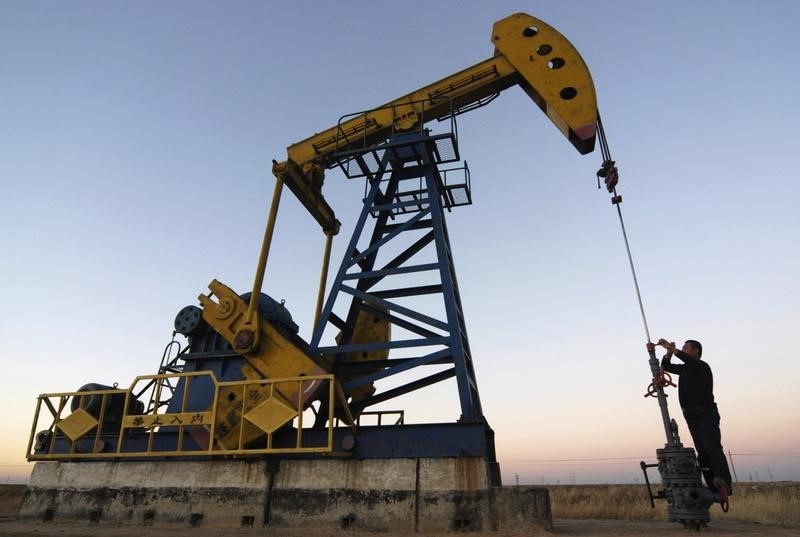Investing.com’s stocks of the week
Investing.com - Oil prices steadied on Tuesday in Asia after their sharpest one-day fall this year on Monday on fears that growing U.S. supply and a spreading trade war between the U.S. and China could create a new glut.
Crude Oil WTI Futures were up 0.9% to $52.48 per barrel by 1:09 AM ET (6:09 GMT), after falling some 3% on Monday.
Brent Oil Futures, the global oil benchmark, also gained 0.9% to $60.34 per barrel.
The market had been hit on Monday by a series of negative announcements, starting with weak economic data in China and culminating in U.S. criminal charges against Chinese telecommunications giant Huawei.
The Justice Department unveiled two cases against the Chinese technology giant. One indictment accused the company of trying to steal trade secrets from T-Mobile, while the second indictment claimed the company violated Iran sanctions.
"Today we are announcing that we are bringing criminal charges against telecommunications giant Huawei and its associates for nearly two dozen alleged crimes," Acting Attorney General Matthew Whitaker said in a statement. "China must hold its citizens and Chinese companies accountable for complying with the law."
the move came only two days before Chinese Vice Premier Liu He meets a U.S. delegation led by Trade Representative Robert Lighthizer for talks aimed at de-escalating a trade war that has slowed global growth, and consequently global demand for oil.
The only supportive factor of note Monday was that the U.S. also announced sanctions against Venezuela’s state-owned oil company PDVSA, a move that could tighten supplies marginally.
The measures effectively block the regime of President Nicolas Maduro from exporting crude to the U.S., and add to the pressure on him to step aside for Juan Guaido, the opposition leader who proclaimed himself interim president last week.
Citing three sources with knowledge, Reuters reported that PDVSA had requested its customers with tankers waiting to load Venezuelan crude bound for the United States to prepay for the cargoes before they leave the ports.
"They are not allowing tankers bound for Valero, Citgo and Chevron (NYSE:CVX) to leave Venezuelan ports if not prepaid," a PDVSA source told Reuters, referring to a decision by the company's trade and supply division.
